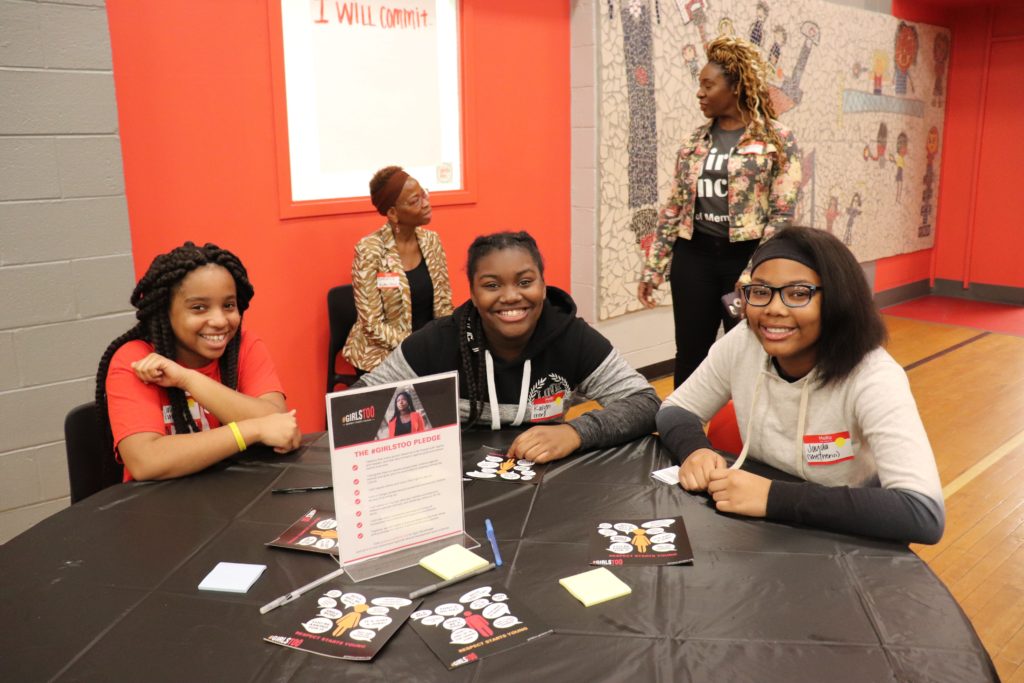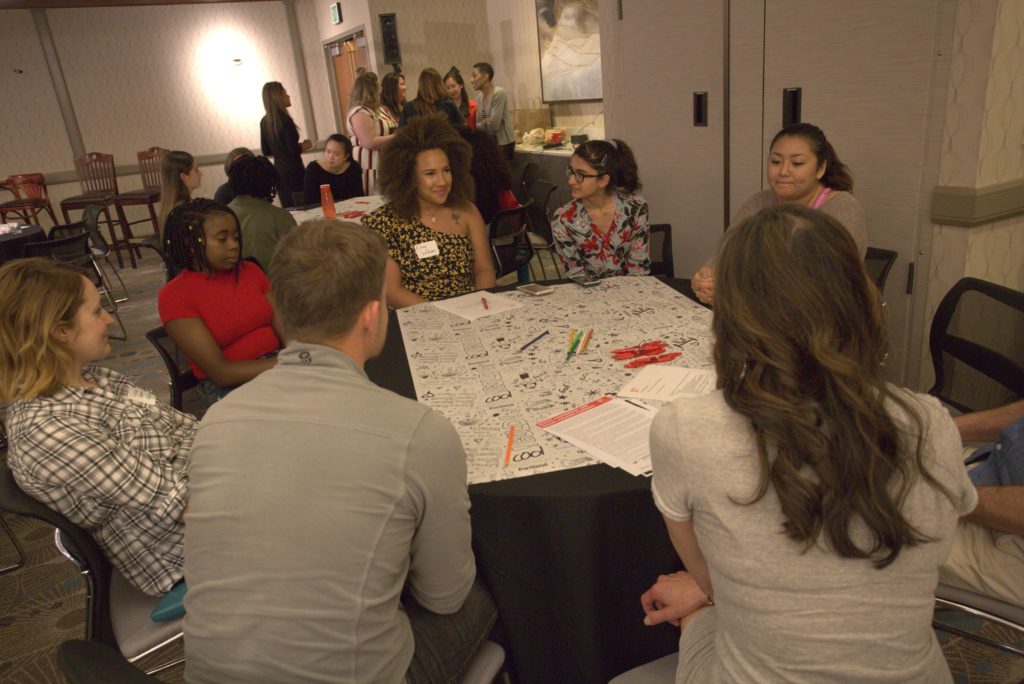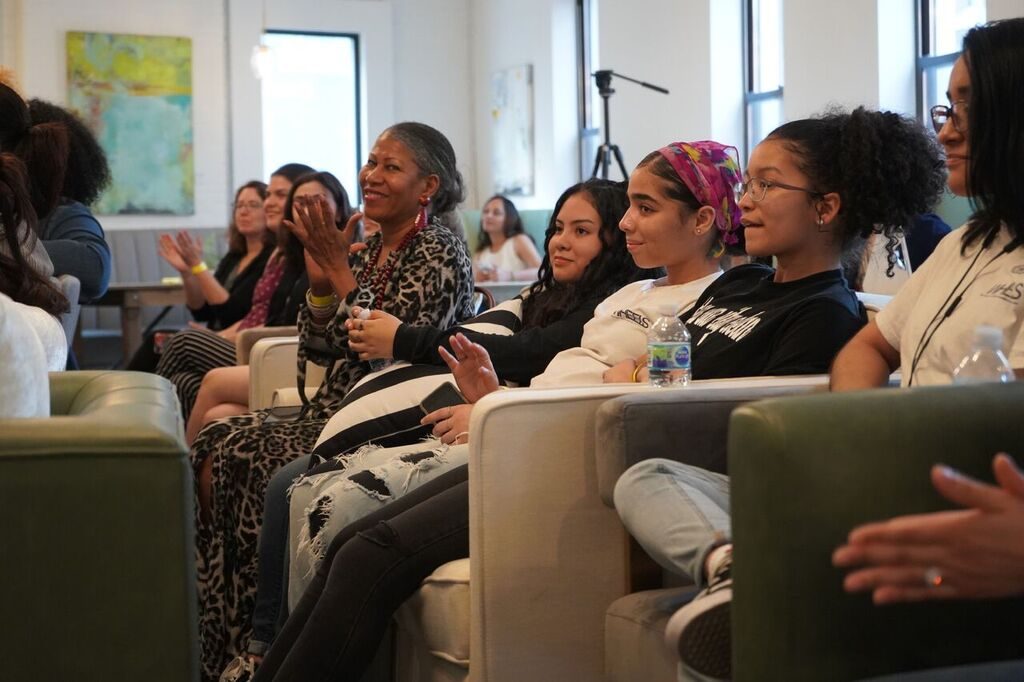#GirlsToo Teen Talk Series | The Perspective of the Next Generation
Girls are powerful and can create change in the world around them. This next generation is passionate and courageous and ready to act as change agents in their communities. Last month, we wrapped up our #GirlsToo Teen Talk series, where youth came together to discuss how sexual harassment and violence affect their lives and how together we can create a safer, healthier culture of respect. The events took place February to May in Memphis, Orange County (CA), Portland (OR), and New York City.
Here’s what young people said:
1. Young people care and are ready to get involved
Teens from across the country feel strongly about being a part of a positive culture shift and conversation. Shymire, a senior in New York, said, “It’s important to involve young people in this conversation because it happens in our generation the most, and the perpetrators are usually our peers or people our own age. We need to talk about the ways we’re treating and hurting each other, and how to change it in order to create a culture of respect.” Similarly, across the country, Ashley, a sophomore in Portland said, “Our call to action starts with us—right here, right now.”

2. Young people are witnessing, if not experiencing, sexual harassment and violence
Teens shared experiences of sexual harassment taking place in school and virtually. Lucas, a senior in Memphis said “Young women and men my age tend to grope and touch each other in the hallway at school.” Teens also discussed experiences relating to street harassment, particularly in New York, and navigating when to speak up or stay quiet due to concerns around safety. Young people are also seeing harmful attitudes and behavior online. “Social media and digital media in general adds to an already established system of objectification of men and women,” said Ben, a freshman from Memphis.
3. Teens recognize that social norms and stereotypes fuel sexual harassment and violence
Young people talked about hearing at an early age what it means to be a boy or a girl, and how these beliefs have affected how they view and treat others. They talked about stereotypes that boys aren’t supposed to be emotional and instead strong, controlling and in charge. On the other hand, girls and women who are outspoken are often put down and called names. Teens also talked about dress codes and how they contribute to the belief that boys can’t control their sexual desires and girls have to police what they wear as a result.

4. Teens need adult support inside of school
Teens want information on how to be healthy and safe. Ashley said, “We need to create a space for relevant sex ed. That talk needs to be shifted so it’s not just about sex, but how we can have healthy relationships and respect for one’s self and partner.” Jasmine, a senior from California, said her sex education at school was given through an online course without mention of consent. Esme, also from Orange County, commented, “Young people should not have to learn about unhealthy relationships through experience. It should be someone guiding you, being the example, and making sure you’re aware of the signs.”
5. Teens need adult support outside of school
Teens voiced their need for adults to stand up and serve as role models, and to take their problems seriously. Esme, a senior at Santiago High School in California said, “Listen to young people with compassion. Uplift their voices, especially those in marginalized communities.” Teens around the country agreed. “We’ve got to call out adults and make them understand how difficult it can be for young people to stand up,” said Kayla, a senior at the University of Memphis. “Adults need to acknowledge the power structures with students and in their lives and make themselves a visible and known ally.”

6. Young people believe small actions can make a big difference
“Remember that your words and actions have an effect,” said Aarna from Portland. “You making a rape joke or laughing at a rape joke has an effect on the rape culture around us. You listening to an artist who is a rapist has an effect on the culture around us. Supporting organizations who are anti-LGBTQ or who have sexual violators in their higher levels has an effect on the culture around us. Every little action we take has an effect on how the culture is being built.”
So what now? What’s next?
The #GirlsToo movement is gaining momentum as more and more young people come together to share their experiences, ideas, and commit to taking action to create positive change. By taking the #GirlsToo pledge, whether you’re an adult or teen, you can join the movement and access resources to be a change agent right where you are.
Haven’t taken the #GirlsToo pledge? Show your commitment to end sexual harassment and violence among youth. Sign the pledge.
